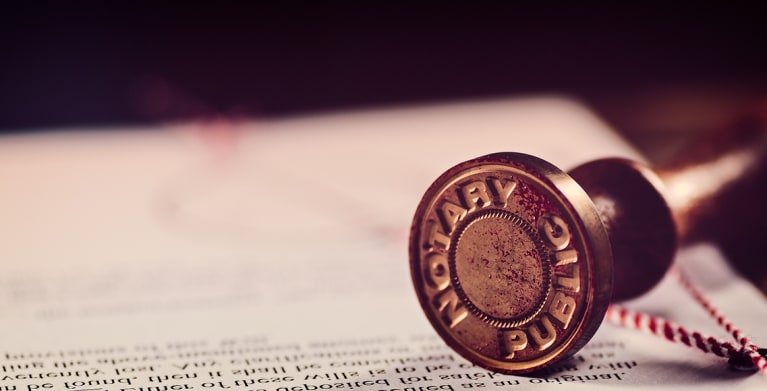Qualified Notary Solutions: Making Certain Legal Credibility and Safety
Wiki Article
Debunking Notarial Work: Simplifying the Function and Relevance of Notaries
Their function, often shrouded in enigma for many, brings considerable weight in making sure the legitimacy and stability of important records. By unwinding the complexities bordering notarial practices and shedding light on the importance of their acts, a clearer understanding emerges of the important role notaries play in promoting the fabric of legal and lawful arrangements.The History of Notarial Work
The history of notarial job dates back to old people, where scribes played a vital duty in taping crucial details and confirming documents. This led to the growth of notaries, people appointed by the state to act as objective witnesses in lawful matters.
Throughout the Center Ages, notaries gained prestige in Europe, with their features increasing to consist of preparing lawful records, licensing trademarks, and protecting documents. The increase of worldwide profession better emphasized the value of notarial job in verifying contracts and contracts across boundaries.
In the contemporary era, notaries remain to play an important function in legal and business purchases by validating identifications, validating the credibility of documents, and preventing fraud. Their duty in licensing the legitimacy of contracts adds a layer of protection and trust to the ever-evolving landscape of business and law.

Responsibilities and Obligations of Notaries
The historic advancement of notarial job from old worlds to the modern era has actually formed the distinct duties and obligations that notaries promote in legal and service deals today. Notaries play a vital function in validating the credibility of files and the identification of signatories. Among their primary duties is to witness the finalizing of important documents, such as wills, deeds, and agreements, to ensure that all events are participating in contracts intentionally and voluntarily. Notaries also validate that signatories are of audio mind and not under pressure or threat.Moreover, notaries are tasked with providing oaths and affirmations, which are important in legal procedures and the execution of sworn statements. They certify duplicates of original records, providing assurance to establishments that the duplicates hold true reproductions of the originals. Notaries have to preserve exact documents of all deals they look after to make certain transparency and responsibility. Generally, the tasks and duties of notaries are necessary in protecting the integrity and validity of various documents and purchases.
Notarial Certificates and Signatures
Exhibiting precise focus to detail, notarial certifications and trademarks serve as important parts in confirming the credibility of legal papers. Notarial certificates commonly include critical details such as the day of registration, the names of the signatories, a summary of the paper, and the notary's official seal. These certificates give a clear record of the notarial act, making sure that the file can be easily identified and mapped back to the notary that managed the process.Signatures play a pivotal duty in notarial job, as they represent the contract and permission of the celebrations involved. Notaries thoroughly witness the finalizing of records to verify the identity of the notaries and confirm that they are authorizing of their own free choice. By fastening their official seal and trademark to the document, notaries license that the needed procedures have actually been followed which the document is legitimate and enforceable.
Essentially, notarial certifications and trademarks are the hallmark of authenticity in lawful transactions, offering assurance to all parties included that the records are genuine and binding.
Relevance of Notarial Acts
Registration Process Explained
Clarifying the registration procedure gives quality on the important steps associated with validating legal documents. The registration procedure typically begins with the individual offering the record to a notary public. click for source The notary after that confirms the signer's identity with acceptable identification methods. As soon as the Find Out More identification is verified, the notary makes sure that the private signing the record does so voluntarily and with no threat.
Verdict

Notarial certificates usually have vital information such as the date of registration, the names of the signatories, a description of the record, and the notary's main seal. These certificates offer a clear record of the notarial act, making certain that the document can be easily determined and mapped back internet to the notary that oversaw the process.
By fastening their official seal and signature to the paper, notaries certify that the needed treatments have actually been complied with and that the paper is valid and enforceable.
By validating the identity of the signatories, validating their willingness to get in into the contract, and certifying the day and location of the finalizing, notaries play a critical role in promoting the legitimacy of legal documents.After the paper is signed, the notary will attach their official seal or stamp onto the paper.
Report this wiki page